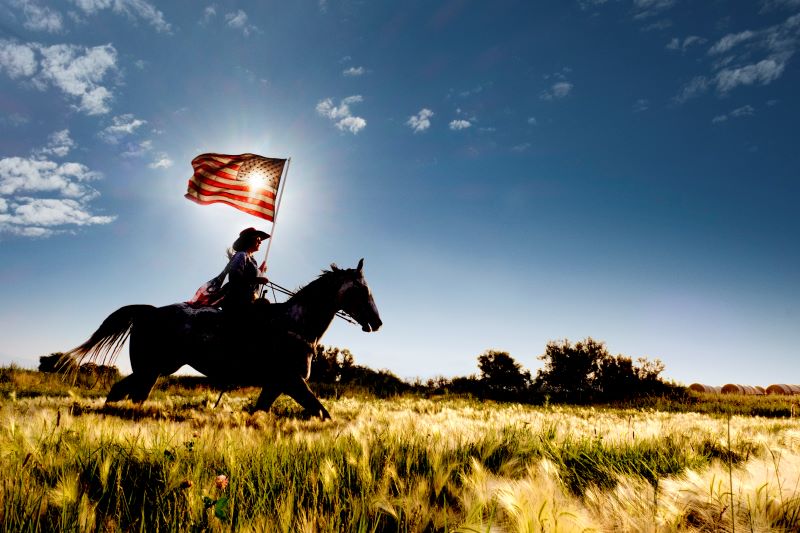The Boston Tea Party Protested Government Overreach
Sign up for a six month free
trial of The Stand Magazine!
Protests. Frustrated Americans. Anger. Out-of-touch politicians who fail to accurately represent the people. Sound familiar?
It almost sounds as if that could describe the reality in which we find ourselves today.
Yet, it accurately describes the plight of the American colonists in the late 1700s that led to the historic event that took place on this day 247 years ago, The Boston Tea Party of December 16, 1773.
As we reflect on that significant day when patriots took a stand, may we resolve to stiffen our spines in the face of strangely similar forms of government abuses today.
A Party?
Not really. The name is a bit misleading in that it really wasn’t a party. Tea was involved, however, and it did take place in Boston – Boston Harbor.
Tea was a favorite drink among the colonists, and they drank a lot of it, nearly 1.2 million pounds per year. Thus, it was a major source of income for the British East India Company.
Seems like a good deal, right? The colonists wanted tea and the British could supply it.
Leave it to the government though to mess up a good thing.
Years earlier, in 1767, British Parliament passed the Townshend Acts – a series of acts asserting authority over the colonies by taxing certain essential goods such as lead, glass, paint, paper, and tea. The protest and noncompliance by the colonies over the unfair taxes caused a repeal in 1770 of the Townshend Acts on everything except for tea.
As a way of circumventing the unfair tea taxes, colonial merchants received tea smuggled in by Dutch traders, rather than the East India Company, which hurt their finances and left them with tons of tea rotting in warehouses.
British Parliament, determined not to lose the massive revenue on tea sales, passed the Tea Act in May of 1773. The primary purpose of the Tea Act was to bail out the financially troubled East India Company. Though it was a private company, it played a huge role in the British economy, thus, it behooved the British to see that it remained successful.
The act would prop up the company by allowing them to ship its tea directly to the colonies without first landing it in England.
Additionally, the act commissioned agents who would have the sole right to sell tea directly to the colonists, thus bypassing the merchants.
Furthermore, the act retained the tax on imported tea at its existing rate. The only difference was that since the company was no longer required to pay an additional tax in England, the Tea Act effectively lowered the price of the East India Company’s tea in the colonies. East India Company’s tea actually became cheaper than smuggled tea.
Essentially, the British government granted the company a monopoly on the importation and sale of tea in the colonies. As a result of the Tea Act, Americans were forced to appoint commissioners to major ports to receive and pay for the tea when it arrived. That meant that even if the colonists didn’t want the tea, and no individuals purchased it, since it had been received, the colonists were still taxed anyway.
It Backfired
Whatever Parliament’s intentions were, whether increasing revenue or appeasing the colonists, it didn’t work. In fact, it only angered them more.
They started to act out in their frustration. They began by preventing the tea from even being received at the ports. Many of the British appointed commissioners tasked with overseeing the receiving of the tea stepped down from their position, and at many ports, the colonists forced the ships to turn back to England.
Parliament had underestimated America’s disdain for oppressive government. Concerning Great Britain, Benjamin Franklin said none of their actions were “sufficient to overcome all the patriotism of an American.”
The Showdown
Though other ports had been successful at rejecting ships and forcing them to return to England, Boston’s Royal Governor, Thomas Hutchinson, forced the ships to stay in the harbor. Boston’s commissioners hadn’t stepped down as others had.
All eyes turned to Boston. Would they stand?
By letter, word came from Philadelphia stating: “All we fear is that you will shrink at Boston. May God give you virtue enough to save the liberties of your country.”
Both the British and the colonists knew that if the tea was unloaded, even if against their will, they would be taxed for it. The ship’s owner had requested to simply sail back to England and avoid conflict, but his request had been rejected.
An impasse had been reached. The colonists really had only two options, receive the tea and pay the unjust tax, or throw the tea in the harbor.
They chose the latter. On the night of December 16, 1773, about 60 men, some dressed as Mohawk Indians, and with the encouragement of a large crowd of Bostonians, boarded the ships and dumped 342 chests, over 90,000 pounds, of tea into the Boston Harbor.
Americans sent a powerful message that they were fed up with the strong arm of the British government. The Tea Party didn’t go unanswered, however. In retribution, the British Parliament passed the Coercive Acts, later called the Intolerable Acts. The Intolerable Acts effectively made Massachusetts slaves to Great Britain.
Britain counted on the Coercive Acts squelching rebellion and preventing the colonies from uniting, but the British had once again underestimated America. Rather than squashing rebellion, the opposite happened. The colonies saw the measures as further evidence of Britain’s tyranny, thus they united together even more and planned further resistance.
The colonists had enough, and they knew Britain’s Coercive Acts had gone too far. By September 5, 1774, less than a year from the date of The Boston Tea Party, elected delegates from all 13 colonies except Georgia met in Philadelphia for the First Continental Congress to determine how to resist British oppression.
The delegates were divided on how to move forward, but one thing they agreed upon and united around was the desire to be free men and to gain independence. The Boston Tea Party was one giant step forward in America’s march toward 1776.
Will Government Ever Learn?
We are 247 years removed from the events of that day, but unfortunately, it doesn’t seem as though our government has any desire to maintain limited power.
There are few areas of our lives in which the government does not find itself. As I write this article, power-hungry leaders around the nation are mandating churches, restaurants, gyms, barbershops, salons, and other private businesses to shut down to stop the spread of the China virus. In addition to telling us where we can’t go, they are trying to tell us what we must do – things like forced mask-wearing, social distancing, and even possibly a mandatory vaccine.
What would a potential Biden/Harris administration of the government look like?
Biden hasn’t hidden his feelings and his agenda. In a 2018 speech at an annual dinner for the Human Rights Campaign, Biden said of people who oppose the LGBTQ agenda that they are, “Virulent people. Some of them the dregs of society.”
During an October 15, 2020, town hall event, he made his opinion clear about children struggling with gender identity issues: “The idea that an 8-year-old child or a 10-year-old child decides, ‘You know I decided I want to be transgender. That’s what I think I’d like to be. It would make my life a lot easier.’ There should be zero discrimination.”
His ideology will affect the types of legislation he will advance. It will be liberal. It will be radical. And it will be oppressive to any who dare stand against it.
Biden is targeting our 2nd Amendment rights as well. In a conversation with Anderson Cooper on August 6, 2019, Cooper said, “So, to gun owners out there who say, ‘Well, a Biden administration means they’re coming for my guns…” Biden cut in, “Bingo. You’re right, if you have an assault weapon. The fact of the matter is they should be illegal, period.”
Then of course there are his plans for student debt cancellation, free healthcare, environmental policies, phasing out fossil fuels, and much more – all of which will increase the tax burden on blue-collar workers.
Let’s Not Take Our Freedom For Granted
The colonists grew weary of government overreach. They decided to stand their ground. It began civilly, but it soon transformed in ways that ultimately gained our independence.
The tea has long since drifted away from Boston Harbor, but the thirst for freedom and justice for many Americans remains as strong as ever.
May God grant us the courage to exercise every legal right granted to us to keep our freedom intact for both ourselves and future generations.

Sign up for a free six-month trial of
The Stand Magazine!
Sign up for free to receive notable blogs delivered to your email weekly.


















